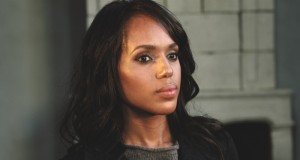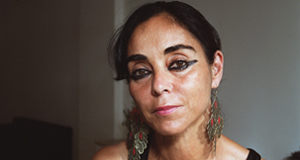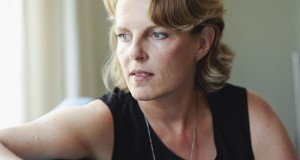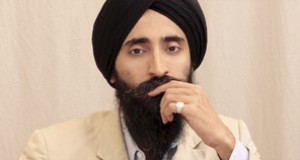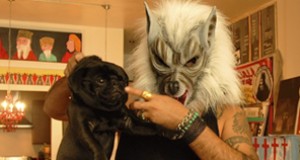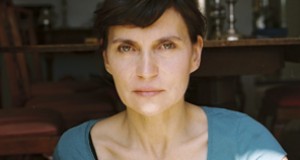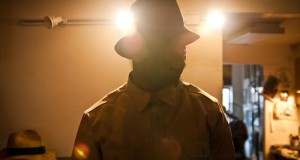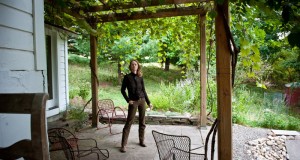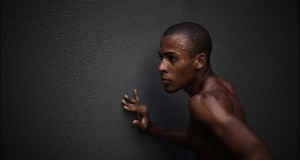
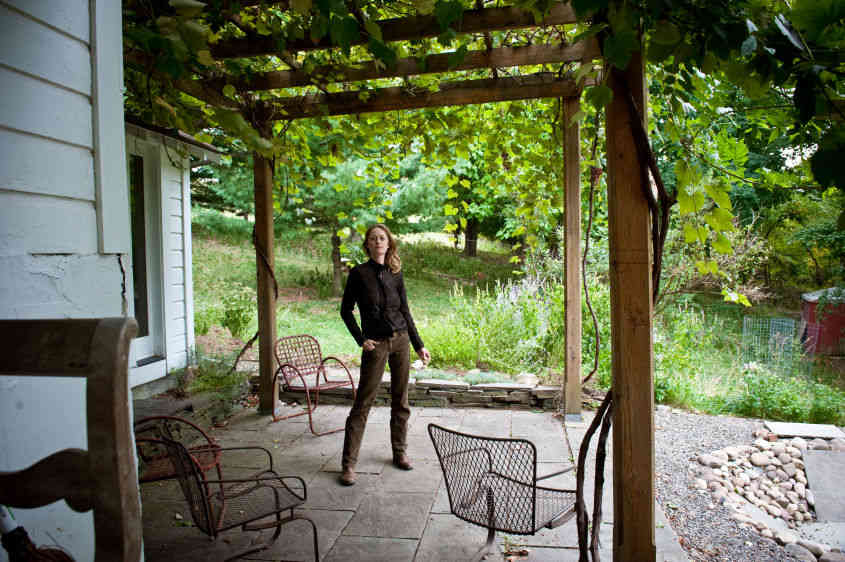
kn-d
kely nascimento-deluca
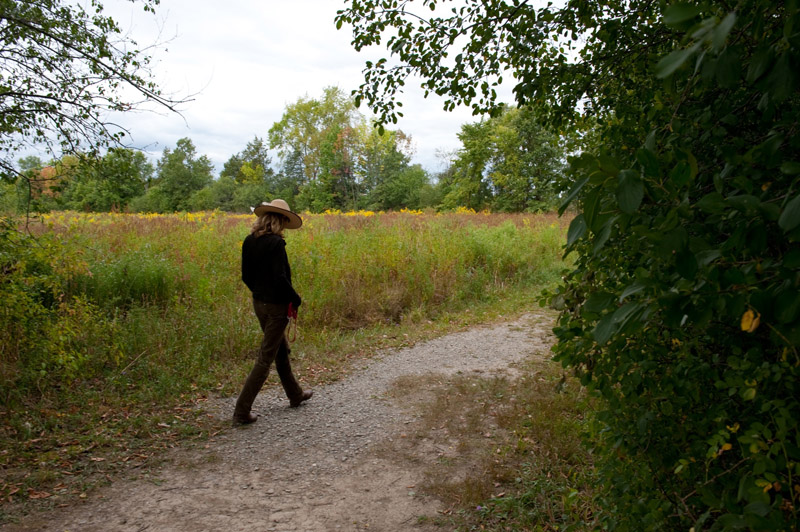
051Rainer Final-Rainer Final
kely nascimento-deluca
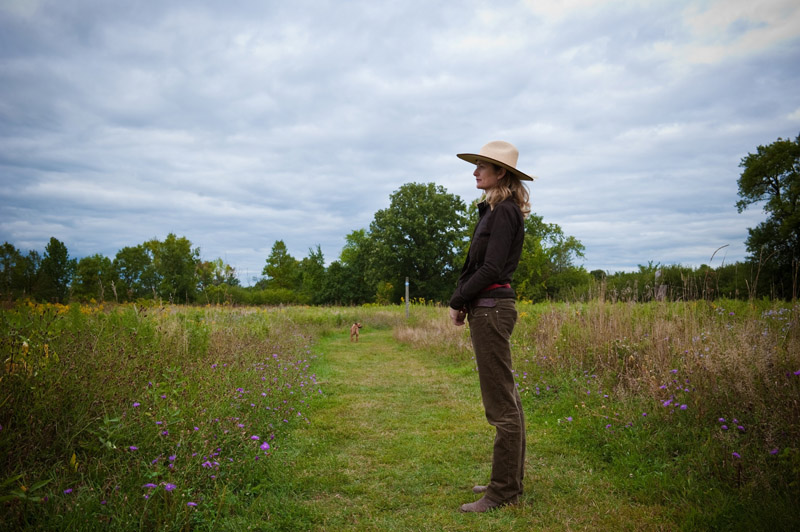
049Rainer Final-Rainer Final
kely nascimento-deluca
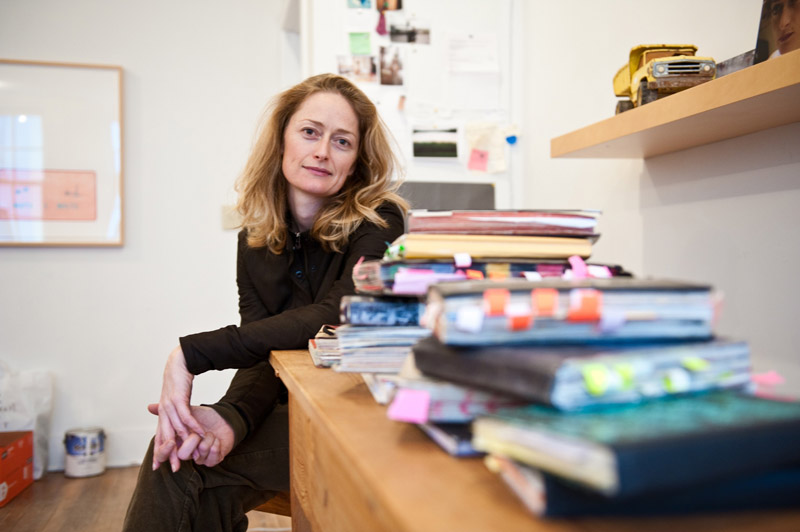
071Rainer Final-Rainer Final
kely nascimento-deluca
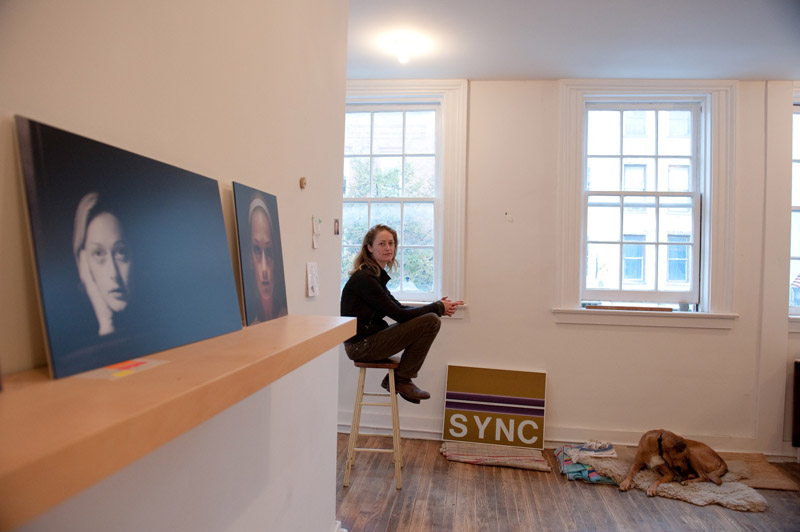
060Rainer Final-Rainer Final
kely nascimento-deluca
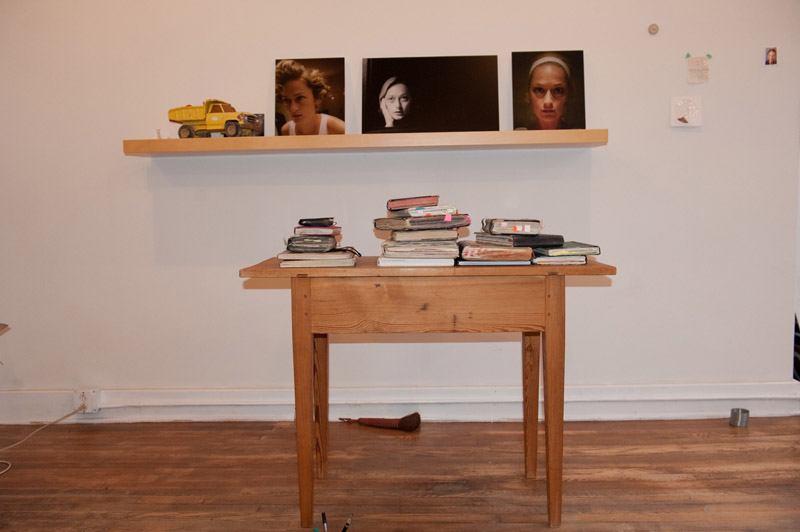
065Rainer Final-Rainer Final
kely nascimento-deluca
Inspired by memories and her own artistic vision, Rainer Judd defines a cinematic role in the history of modern art
Written by Tristine Skyler / Photographed by Kely Nascimento-DeLuca
A brief two hour train ride takes you to the vibrant, bucolic town of Hudson, NY, where Rainer Judd moved with her boyfriend in 2002.
Between her home in Hudson – she recently held a seat on the town council – and a “sparse” New York apartment on a shady West Village street, the multi-talented filmmaker has crafted a life for herself far from the ubiquitous presence of her father, minimalist master Donald Judd, whose work resides in the art meccas of Marfa, Texas and Soho, Manhattan.
After a childhood where she was “suddenly whisked away on a plane” to Texas at the age of 6 by her dad after her parents painful and prolonged split, Rainer and her older brother Flavin returned to New York in their mid-teens to finish high school. From that point on Rainer Judd’s destiny has been held squarely in her own hands, and she relies on what she refers to as the wisdom of dreams. “You’re given dreams for a reason,” she says frequently. “You have to respect them.” By 15, she had enrolled in an accelerated program where she would complete the remainder of high school in only a year. Next was drama school at NYU’s prestigious Circle in the Square, but after a year transferred to their film school.
But at the age where her biggest concern should have been whether she made the right choice of colleges, her father, “Don,” as she has always called him, died suddenly of lymphoma at the age of 65. One of the most important artists of the later twentieth century, he left behind a massive estate: 125,000 square feet of art installed spaces spread between New York and Texas, $200 in the bank, and $5 million in debt.
At just 23 years old, Rainer Judd became the co-executor of her father’s complex estate, while trying to give shape to her own budding artistic career. Faced with the question of what to do next, she has had to take her own advice and listen to her dreams.
In the town of Marfa, home of the Chinati Foundation’s museum dedicated to the elder Judd and his contemporaries, a popular bumper sticker is sold at the local book store with the initials WWDJD- standing for ‘What Would Donald Judd Do?’ The sticker is a joke of course, drawing a comparison to an evangelical Christian logo. But when you ask his daughter, a filmmaker by occupation, as well as an actress, artist, photographer, poet—and even songwriter—how she interprets it, her answer is simply, “Its important to have a sense of humor.”
Talented, intelligent and soft-spoken, a rare artist seeming to lack any signs of inflated ego, Rainer Judd today can look you in the eye, tell you “all challenges in life can be a blessing,” and mean it. She says she searches for truth in her work. She’s interested in honesty, in “finding something extraordinary in the ordinary.”
Her directing talent revealed itself early. She thrived at NYU’s Tisch School of the Arts Sight and Sound program. Her earliest film, Instant End, an experimental short influenced by Vertov (of Man With a Movie Camera fame), Rodchenko and other Russian filmmakers, depicts sped-up black and white images of people commuting in and out of train stations, and walking through city streets, juxtaposed with a woman spreading black paint over her body – first her hands, then her feet, then all over and finally her face. Judd describes the film as “an exploration of speed, the world going faster, and about the need to disappear. The thing about New York is that you can disappear.”
Later, her thesis film, Plague Circuit, an ambitious and impressive sci-fi adaptation of the story by Robert Sheckley about a man’s moral breakdown, won the 1991 Texas Award at Dallas Video Festival. After graduating, Judd set out for Los Angeles where she pursued acting, directed music videos, and created art and photography. She recalls lovingly how her first roommate’s apartment was the headquarters for a women’s activist group called “Freedom Unlimited.” Later her and her brother started a film festival in Marfa – the Foxtrot Romeo Film Festival – screening works by Ed Ruscha, Richard Serra, and Claes Oldenburg. Like anyone, she struggled with the lack of structure in a self-employed, creative career and the difficulty of finding a support system. She feels it was no different from the struggles faced by her mother, a dancer-choreographer in the 1970’s, and other women like her. “All fired up to leap, ready to sacrifice the loves of their lives, families, having children…. except there was nowhere to leap to.”
Judd describes a recurrent theme in her early films as ” adapting and being true to yourself; the need for human exchange stemming from a lonely childhood.” She mentions her mentors, the legendary mother-daughter acting coaches Sandra and Greta Seacat, who are very skilled at mining the emotional content of childhood, and often encouraged her and led her there. She also gratefully mentions everyone who helped or encouraged her. When she was preparing to shoot her recent short film, Remember Back, Remember When, Gus Van Sant wrote to her, “Go with it!,” and helped her secure key crew to shoot in Texas. When she showed longtime friend Sofia Coppola the script, the feedback was the rallying call, “Get some actors. Go shoot it.”
Judd takes encouragement seriously – a section of her bulletin board in her Hudson, NY studio is devoted to it – and it has paid off. Her resume reveals impressive achievements in multiple mediums: acting credits in films big and small such as End of Days and The Pornographer, A Love Story, drawings and photographs in group shows from New York to Austin, Texas. (A solo show is upcoming this spring at Gallery 135 in Hudson.) Recent honors include the 2007 Art Production Fund, Artists at Giverny, Residency and Grant. She mentions a Man Ray quote that was on her bulletin board in high school, “It’s not the medium, it’s the artist.”
“You only have so much time,” Judd says, “And [you] only should focus on the scariest most exciting things, the things that feel like a doorway you have to go through. Acting in films,” she continues, “Is the same as drawing or writing a song, creating to find out who you are, what you need. Sam Shepard, Kurt Vonnegut, talk about this. Rudy Wurlitzer says, ‘I write to know how I feel.’”
This exploration has led Judd not only to filmmaking, but to a variety of other media. Her photographs are dreamy landscapes, shot with a point-and-shoot Yashica after she breathes on the lens to distort the image.
(Other photographs are shot through the created ‘lens’ of extreme weather.) Her poetry, peppered throughout her journals where they’re written only for herself, is vivid, immediate and emotional.
One poem reads:
“Can one master magic?
Isn’t that the mystery of it
That it’s born out of risk
A leap
But from what ledge to jump from
I must know”
Born to a dancer-choreographer mother, now a pastry chef in the West Village for the past twenty years, Judd describes their relationship as “very close, a healing relationship, a camaraderie.” She describes her father as “Serious. Charming. A very solitary person.” When he died, she felt she had lost her best friend, her “tether to the planet.”
But when her father died, a friend of his gave her advice that served only to confuse her, plunging her into self- doubt that would plague her for the coming years. “You should only do one thing,” he told her. She had to “carve her territory.” So should she only act, or only make films, or only take photographs?
Was he referring to the traditional art world’s desire to encourage an artist to stick with one medium and build up a body of work? And what of the “silent elephant in the room”— that she would always be measured against her father’s work. She speaks carefully on this, telling a story she heard about the son of an extremely famous author who recently sent out galleys of his book. One rejection letter said, “Your book is good, but not good enough for who your dad is.”
Rainer believes that everyone has experienced something at around the age of six or seven, that becomes fundamental to who they are. In her case, it was the difficult and protracted custody battle between her parents, “an unnecessary war,” as she describes it. Her parent’s divorce gave her the distinct pain of “not having everyone in the same room. Being with one parent while yearning for the other.”
She addresses this in her recent short film, Remember Back, Remember When, a richly shot and powerful work starring Martin Donovan and Alex Auder, which makes her most potent statement yet. The film depicts a heated argument between an artist and his wife, which leads to a young girl and her brother being violently dragged off in a truck while their mother tearfully chases after them. Judd says the irony of the short and her upcoming feature is that she doesn’t really remember that time in her life very well, she was too young.
But if her memory falls short, her commitment to researching for the feature version of the short does not. She has enormous amounts of archival material, including court papers, journals and letters between her parents during that time to inspire the script. She feels that the metaphor of being taken in the car stems from the shocking experience of her father abruptly moving her and her older brother to Marfa, without her mother’s knowledge, shortly after the split.
It is through this lens that a recent drawing commissioned for a benefit for the Coalition for the Homeless takes on a heartbreaking meaning. The drawing – watercolor and colored pencils on 22×30 hotpress – shows a large skillet cooking eggs surrounded by the text “In the time it takes to scramble an egg… Everything had changed,” suggesting the agony of those moments in life when your world does a 180 degree tilt. When Judd showed it to her mother, her mother remarked that the skillet looked like the moon. And Judd immediately realized her subconscious was at work again. The main character in her feature is named Luna, and she’s been exploring in her life the idea of having and wanting children, “grappling with the procreation timeline” as she puts it. She says something like finding the moon in a skillet “really makes my day. Cause you don’t know why you’re making it and then you realize where it comes from.” She says that the “spirals are getting tighter in her work,” she is accessing her subconscious more, becoming more honest.
A drawing Judd made as a child is revealingly titled Tug of War. A few lines in one of her extensive ‘visual’ journals comprised of thoughts, sketches, poems and all forms of inspiration self-generated or found, reads: “The easiest thing to break – hearts. The hardest thing to break – patterns.”
After her father died, she chose to focus more on acting than filmmaking for a while. The grief was so intense, she says, she needed to use her heart instead of her head, and needed the outlet of expression that acting provided. With her brother as co-executor of the estate, they created the foundation in 1996, which led to overseeing a comprehensive auction of her father’s work at Christies in May of 2006. Since 2003 she has served as board president. So the person who had been told that as an artist she should “only do one thing,” was now running a foundation in addition to her own demanding career.
As foundation board president, a commitment that takes up easily 30% of her time, Judd works with her brother, the board and staff to oversee all aspects of Donald Judd business – maintaining and preserving his permanently installed living and working spaces, libraries, and archives in both New York and Marfa, Texas, while promoting his artistic legacy and developing scholarly and educational programs, including an inspiring Oral History project.
A new director started at the foundation in 2006 and she was talking of doing a radio project about peoples’ memories of Don in Marfa, but Rainer felt it would be a loss to not film them. So she and filmmaker Karen Bernstein filmed about 30 people in Marfa, and 10 in NY, and edited the footage into a piece called Marfa Voices. The Oral History Project, currently ongoing. “includes 85 people now talking about Don, the NY scene, Soho, Max’s Kansas City, Brice Marden talking about the first time he ever saw a Barnett Newman painting…”
“It’s a time consuming project but it’s important,” and she likes getting people to talk. “I’m a good can-opener,” she says.
But unlike when she was younger, she says she’s now “found the balance between duty and patient diligent work, and finding out what it has to do with you… I’m proud I’ve found a way to make it rewarding.” (At the launch of a massive restoration of the building in Soho, a speech she gave recently was titled, If Ever A Building Had A Soul.) She also feels really lucky for what she’s been exposed to. Her father educated them, took them so many places in the world, took the responsibility of their education so seriously. Being with him felt like, “standing next to a fountain.”
Her recent short film, Remember Back, Remember When unabashedly shows a very different side of the Donald Judd legacy, one that is sure to cause some speculation. Was he an explosive, self-centered artist, who wasn’t afraid to have violent arguments in front of his kids? Judd points out that the film is fiction, the product of a collaborative medium. She describes the film as a composite of her emotional experience as a child, where there was in fact no physical abuse. She says the film depicts a heightened moment from her childhood, physicalizing the emotional memory of the kidnapping.
She doesn’t worry about how it will be perceived, at least “Not enough to not do it.” As board president she wants to protect her father’s legacy, but she also trusts the creative community to give her the freedom to express her art the way she wants to. A friend recently reminded her that as Donald Judd’s daughter, she is as much a part of his legacy as his work is.
Yet there has always been an undeniable tug-of-war. Judd describes recurring themes in her work as ” transitioning away from oppression through creativity.” Once the foundation started, there was a feeling for a long time that she had to always be available. ” Its needs were louder, while creative voices can be softer until you find the thing you want to manifest.”
When she was younger, she also felt conflicted over whether to act or direct. Then the conflict deepened into whether she was giving too much to the foundation and not to herself. In her thirties she was conflicted about having children. She admits she spent a lot of time being in conflict. She mentions a Nordic Rune that she kept picking over and over- “Be careful of suffering over your suffering.”
But as her poem says, “Can one master magic? Isn’t that the mystery of it, that it’s born out of risk,” Rainer Judd has taken that leap into mastering it. She has taken that risk. She feels that we are all given a primal knowledge. She notes John Trudell’s discussion of how we all come from tribes. “Its important to be reminded of the gravitational pull between the moon and the earth, primal forces and how its natural for artists to look for these metaphors.”
So what should Rainer Judd do? When asked what her main purpose is, what is driving her now, she responds simply, “becoming Rainer Judd.”
